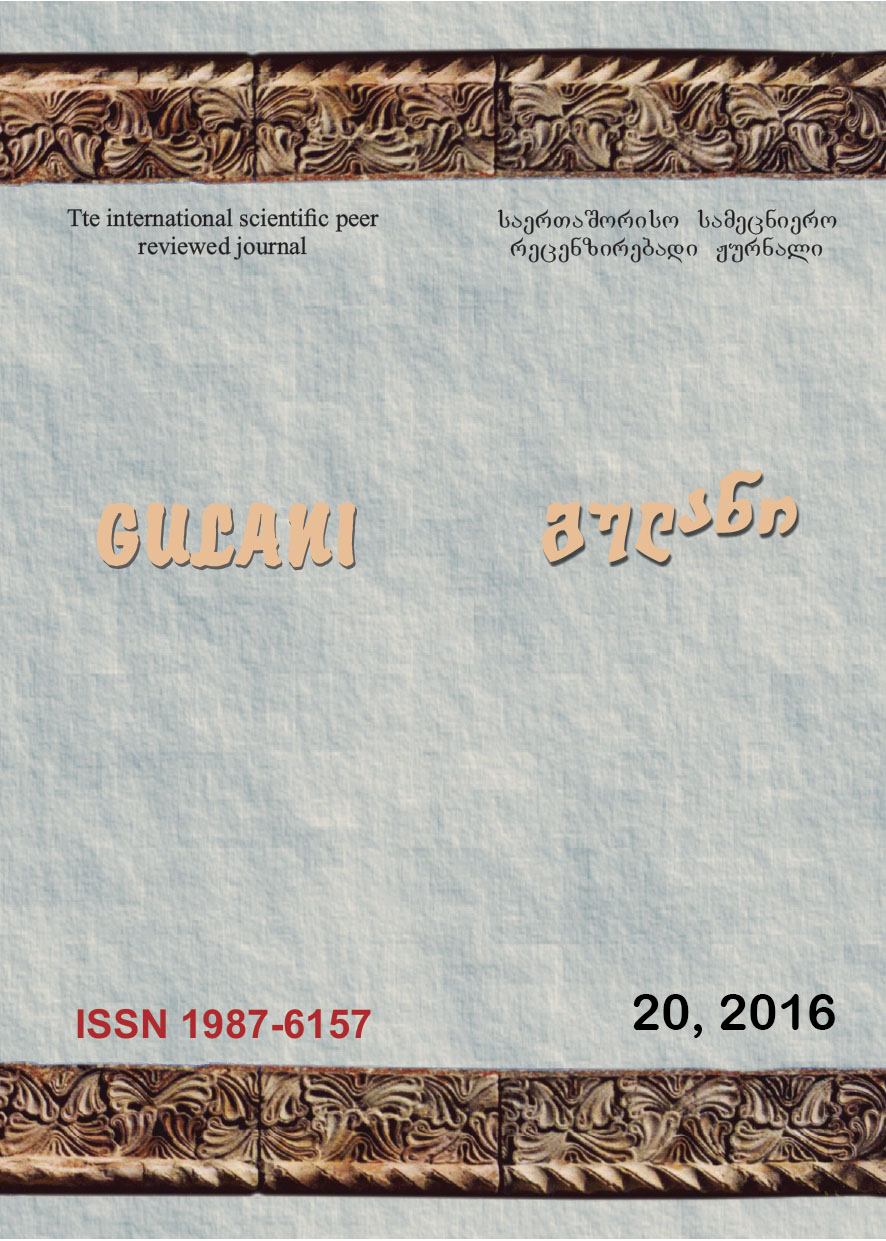ETHNO-POLITICAL RELATIONS AND PROBLEMS OF CIVIC INTEGRATION IN SAMTSKHE-JAVAKHETI
Main Article Content
Abstract
Due to low level of civic identification, people in Georgia prefer to perceive themselves as the representatives of ethnic groups and historical homeland than the members of the Georgian civil society. Serious hindering factor of civic integration is the problem of the knowledge of the state language by ethnic minorities. For a long time we were proud of great number of non-Georgian schools in our country. We considered this fact like defending the rights of ethnic minorities. In fact, with the help of non-Georgian schools the state prepares its citizens as immigrants, deprives them getting jobs inside the country. Today the situation is slowly getting better. It is seen on the example of Akhaltsikhe district where the number of Georgian school children has increased at the expense of pupils having moved from the Armenian and Russian schools. It should be said that in Akhaltsikhe this process is going completely painlessly and effortlessly. The cooperation of Georgian and Armenian population of this city has been developing harmoniously for decades. It is a real example of international coexistence.
